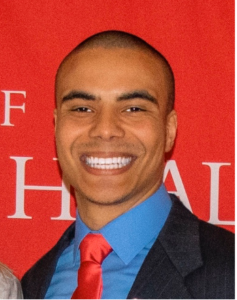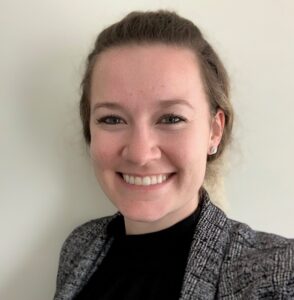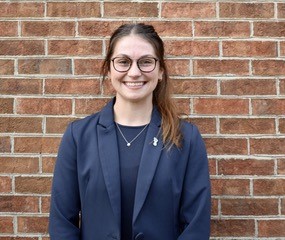Current Fellows
Meet the Cancer Quality and Control Training Program Fellows
Post-Doctoral Fellows
 |
Nathaniel Woodard, PhD, MPH, is a postdoctoral research fellow in the Cancer Care Quality Training Program of the Lineberger Comprehensive Cancer Center. Dr. Woodard is a cancer health disparities researcher with particular expertise in community-based cancer prevention and control research. His research includes work in implementation science and social, structural, and community factors that influence cancer risk, prevention, screening, and outcomes. Dr. Woodard’s work employs community-based methods to design and test interventions to address disparities in cancer health outcomes. His most recent research has emphasized structural racism as a determinant of cancer risk behaviors among African Americans. |
 |
Victoria J. Dunsmore, PhD is a postdoctoral fellow in the Cancer Care Quality Training Program who focuses her work on daily psychological outcomes for patients with cancer. Her dissertation focused on tracking daily coping and ‘scanxiety’ among patients with lung cancer as they approached their upcoming scans. She is currently working with Dr. Stephanie Wheeler and Dr. Katherine Reeder-Hayes to evaluate the effectiveness of interventions aimed at improving medication adherence among breast cancer survivors. As a fellow, she aims to combine her past work and current training to implement interventions aimed at helping survivors manage ‘scanxiety’ as they approach their upcoming surveillance scans. |
 |
Chase Cox, MD is a postdoctoral fellow in the Cancer Care Quality Training Program with a clinical focus in hepatobiliary oncologic surgery and with a research emphasis in patient-provider and systems-based communication. He hopes to explore the methods by which we may improve perioperative communication, patient outcomes, and overall experience. Dr. Cox’s prior practice as a social worker is foundational to his current research into the importance of high-quality communication in the medical encounter and the skills and tools necessary to execute difficult communication well. |
Pre-Doctoral Fellows
 |
Austin R. Waters, MSPH is a predoctoral fellow. His research interests focus on identifying and mitigating inequities in outcomes among LGBTQ+, adolescent and young adult (AYA), and caregiver populations across the cancer continuum. He is particularly interested in the intersection of structural factors such as health policy, costs of care, and insurance structures with individual outcomes such as financial toxicity, health related quality of life, and access to care. Austin’s predoctoral research focuses on financial, employment, and mental health disparities rooted in LGBTQ+ stigma and discrimination among LGBTQ+ cancer survivors. Methodologically, Austin is trained in econometrics, biostatistics, mixed-methods research, community-engaged participatory research, implementation science, as well as qualitative data collection and analysis. |
 |
Lauren Bates-Fraser, MA is a predoctoral fellow and doctoral candidate in the Department of Allied Health Science. Her research interests include i.) understanding the barriers and facilitators for improving 24-hour activity behaviors in oncology populations targeting sedentary behavior, physical activity, and sleep, ii.) mechanisms underlying the effect of 24-hour activity behaviors on cancer prevention and control, and iii.) exercise prescription for oncology populations with an emphasis on lifestyle implementation. Her dissertation research focuses on improving our understanding of sedentary behavior context and cardiovascular disease risk in endometrial cancer survivors. Her mentorship team includes: Dr. Hyman Muss, Dr. Victoria Bae-Jump, Dr. Michelle Meyer, Dr. Justin Moore, Dr. Lee Stoner, and Dr. Erik Hanson. |
 |
Matthew Dunn, MPH, is a predoctoral fellow in cancer epidemiology with a longstanding commitment to health services research and mitigation of health disparities. His research addresses multiple dimensions of quality of care, including treatment timeliness, telehealth access, travel burden, and preventive health services such as screening and primary care. Methodologically, Matt’s work encompasses epidemiology, health services, and geography, and he hopes to use these methods to support community- and population-level interventions. His primary research mentors are Dr. Melissa Troester and Dr. Jennifer Elston Lafata. |
 |
Jordyn Brown, MPH is a predoctoral fellow in the Department of Epidemiology. Her research focus is on identifying and addressing contributors to endometrial cancer disparities. Jordyn’s current predoctoral research projects are centered on the role of the socio-physical environment, physical activity, and medical comorbidities on health-related quality of life among endometrial cancer survivors. Her primary research mentor is Dr. Hazel Nichols. |
Learn more about the Cancer Care Quality Training Program